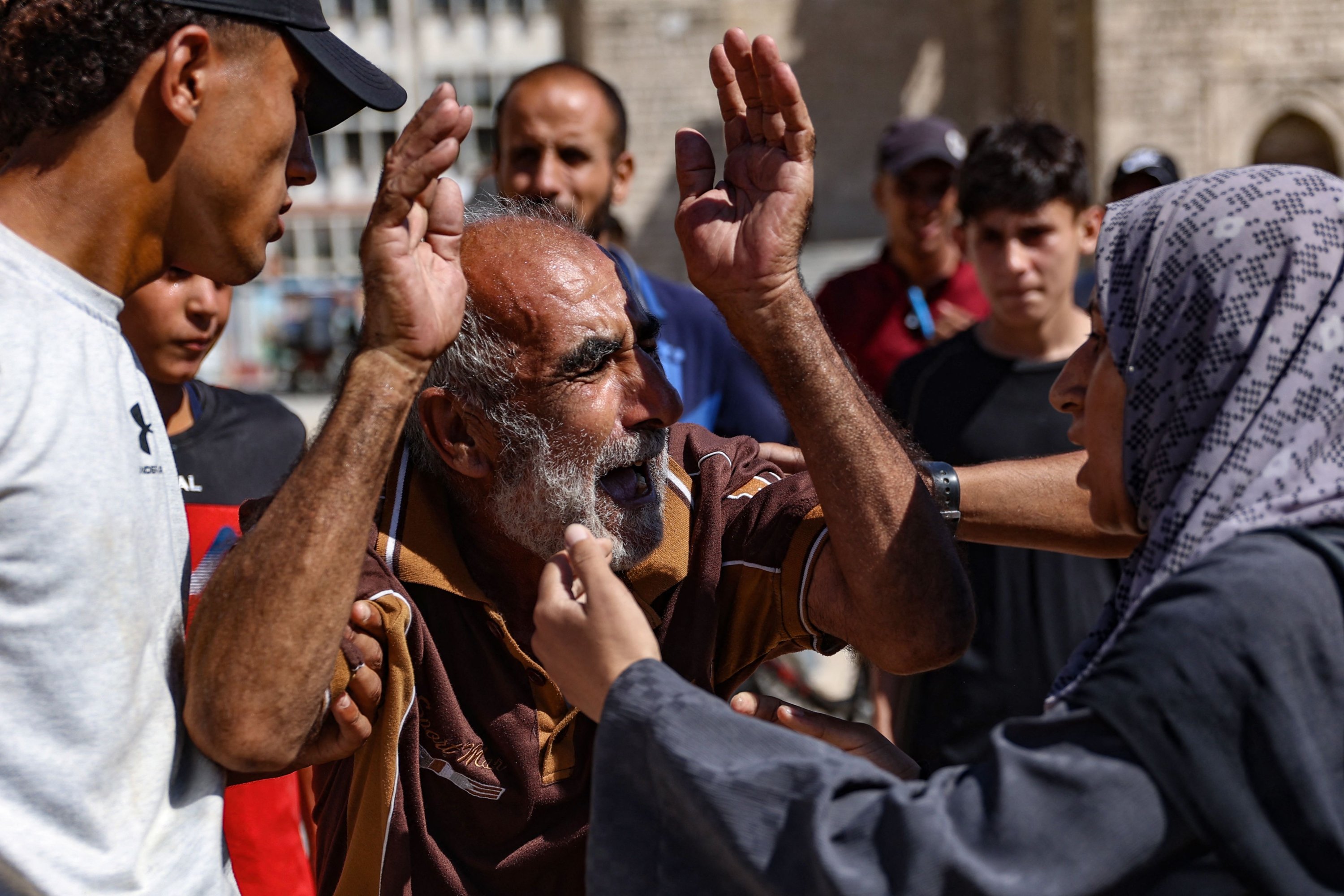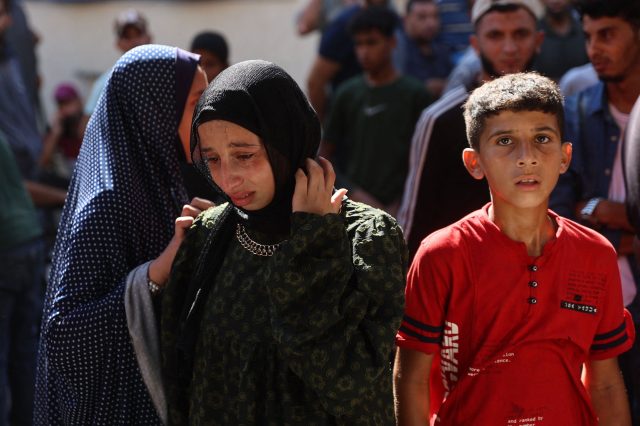Israel intensified its bombardment of Gaza on Thursday, with airstrikes targeting two schools in Gaza City and killing more than 18 people, according to emergency services.
Iran has accused Israel of seeking to ignite a broader conflict across the Middle East.
Western nations are urgently working to de-escalate the situation, which has dramatically worsened following the killing of two prominent leaders in attacks attributed to Israel.
Both Hamas and their Iranian allies have vowed retaliation.
Gaza’s civil defense agency reported that Israeli strikes hit two schools, while the Israeli military claimed the attacks targeted Hamas’ command centers.
“The Israeli occupation killed more than 18 citizens in strikes on two schools,” senior agency official Mohammad al-Mughayyir told Agence France-Presse (AFP), referring to Al-Zahra and Abdel Fattah Hamoud schools in Gaza City.
Mughayyir said 60 people were also wounded and more than 40 remain missing.
“This is a clear targeting of schools and safe civilian facilities in the Gaza Strip,” he said.
At least 13 people were killed elsewhere in Gaza, rescuers and medics reported, as the Israeli military issued its latest evacuation order for parts of the main southern city of Khan Younis.
Strategic mistake
Iran’s acting foreign minister, Ali Bagheri, told AFP that Israel had committed “a strategic mistake” by killing Hamas’ political leader Ismail Haniyeh in Tehran last week, hours after the assassination of Hezbollah’s military chief in Beirut.
Although Israel has not admitted to killing Haniyeh, Iran and its allies have vowed to retaliate, heightening tensions as the Gaza war entered its 11th month.
Israel seeks “to expand tension, war, and conflict to other countries,” but has neither “the capacity nor the strength” to fight Iran, Bagheri said.
Prime Minister Benjamin Netanyahu, speaking at a military base on Wednesday, said Israel was “prepared both defensively and offensively” and “determined” to defend itself.
Cycle of reprisals
Front pages of some of Israel’s leading newspapers on Thursday cited “assessments” that Iran may be reconsidering its actions, reportedly due in part to U.S. pressure.
Officials and leaders across the Middle East and beyond have called for calm, with Britain’s minister for international development, Anneliese Dodds, urging de-escalation during a visit to Jordan.
The U.S., which has sent additional warships and jets to the region, has urged both Iran and Israel to avoid escalation.
France’s President Emmanuel Macron spoke Wednesday with Iranian counterpart Masoud Pezeshkian and later with Israel’s Netanyahu, calling on both to “avoid a cycle of reprisals,” according to the French presidency.
Israel’s military chief, Herzi Halevi, told troops, “We are not stopping” targeting the leaders of “our most dangerous enemies,” vowing to “find” and “attack” Hamas’ newly appointed chief Yahya Sinwar, according to an army statement.
Also on Wednesday, the 57-member Organization of Islamic Cooperation, meeting in Jeddah, Saudi Arabia, declared that Israel was “fully responsible” for Haniyeh’s “heinous” killing.
Bagheri said OIC members voiced support for Iranian retaliation.
“Western countries, who claim they have asked Iran to restrict its response, are not in a position to advise the Islamic Republic of Iran,” he said.
The Israel-Hamas conflict in Gaza has already drawn in Tehran-aligned groups from Syria, Lebanon, Iraq, and Yemen.
Lebanese Hamas ally Hezbollah, which has engaged in near-daily cross-border fire with Israeli troops throughout the Gaza war, has vowed retaliation for the killing of its military chief, Fuad Shukr.
Defense Minister Yoav Gallant said Israel would fight Hezbollah “with all its might” if it continues its attacks across the border.
“We will not allow the Hezbollah militia to destabilize the border and the region. If Hezbollah continues its aggression, Israel will fight it with all its might,” he said.
Israel PM ‘sorry’
The Hamas incursion on southern Israel that triggered the latest conflict in Gaza resulted in the deaths of 1,198 people.

The Palestinian group took 251 hostages, 111 of whom are still held in Gaza.
Israel’s retaliatory military campaign in Gaza has killed at least 39,699 people, according to the Hamas-run territory’s health ministry.
Netanyahu, who has resisted apologizing for security failures over Israel’s worst-ever attack, said in an interview published Thursday that he was “sorry, deeply, that something like this happened.”
“You always look back and say, ‘Could we have done things that would have prevented it?'” Netanyahu told Time magazine.
On the diplomatic front, Israel’s decision to revoke the diplomatic status of Norway’s envoys to the Palestinian Authority over “anti-Israel behavior” drew anger from Oslo.
“Today’s decision will have consequences for our relationship with the Netanyahu government,” said Norwegian Foreign Minister Espen Barth Eide.
The European Union condemned the Israeli move, while Washington described it as unhelpful given the “productive role” Norway played in the secret talks leading to the Oslo Accords of the 1990s.





